Which Techstars Healthcare Accelerator is Right for Me?
Feb 28, 2023

If there’s an upside to the pandemic, it’s a renewed interest in the healthcare and wellness sector. It’s why Trey Bowles, managing director of Techstars Physical Health Fort Worth, said entrepreneurs should capitalize on the current climate.
“More people are committed to spending money on improving their physical health journey,” said Bowles. “There are opportunities from finding connections between physical health and diseases like Alzheimers to injury prevention, addressing and diagnosing long COVID, and building wearables and robotics.”
Meanwhile, in Los Angeles, Matt Kozlov is looking forward to introducing founders to the consortium of partners who he calls some of the most influential and innovation-forward healthcare organizations in the US.
Kozlov is the managing director for Techstars Healthcare sponsored by Cedars-Sinai, Point32Health, UCI Health, and UnitedHealthcare. Founders whose customers are payers and providers will find deep insight and guidance from clinicians about clinical workflows and frontline care that’s otherwise difficult to access.
“Meeting regularly and collaborating with leaders from these companies will help shape products from the onset to ultimately improve quality of healthcare,” said Kozlov.
The Techstars Future of Longevity Accelerator program is the third healthcare-related accelerator program in the Techstars suite, with a particular focus on reducing the caregiving burden placed upon unpaid family caregivers. Led by Managing Director Keith Camhi, the program focuses on themes including preventive health, care coordination, support for aging in place, and providing social connection.
The program is run in partnership with Melinda French Gates’s Pivotal Ventures and has attracted a who’s who of mentors in the category.
The accelerator convenes in Washington D.C. for the first and last weeks of the program, and runs virtually in between. Techstars and Pivotal Ventures made the decision to do this because, as Camhi put it, “the founders who are pioneering concepts to address these problems are often people who are facing the challenges of caregiving themselves, and couldn’t be away for an extended period.”
Interestingly, because the responsibility often falls on the shoulders of adults caring for their aging parents, it’s given rise to a cohort of many nontraditional applicants.
And Camhi is thrilled.
“While others shy away from founders who aren’t in their 20s and 30s because they don’t ‘fit the mold,’ we’re delighted to have a class filled with many seasoned professionals who bring connections and deep corporate experience, as well as seasoned entrepreneurs founding their second or third business," said Camhi.
"Why wouldn’t we back experience."
Whether it’s helping their parents live more independently or with more dignity, the end goal is supporting the caregivers. The hybrid program meets in Washington D.C. to provide access to the many organizations (like AARP), government entities (like National Institutes on Aging), and mentors with extensive policy knowledge based in the area.
In any case, founders thinking about applying to a Techstars accelerator program need determination and grit, but perhaps more importantly, Bowles said, “founders need to be coachable, ready and willing to learn and grow.”
Kozlov agreed.
“It’s a phenomenal opportunity to surround yourself with the right champions who can provide the right inputs so you can build the best business,” said Kozlov. “But you have to be good at asking for help.”

